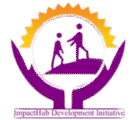
Across Africa, one thing has become clear: sustainable development cannot be achieved by governments and international donors alone. True transformation happens when communities themselves take ownership of the change they want to see. From rural villages to urban settlements, community-led projects are empowering people to solve local challenges, build resilience, and create lasting impact.
This article explores how community-led initiatives are shaping Africa’s development journey, why they matter, and what can be learned from successful models.
Why Community-Led Projects Matter in Africa
• Local Ownership: Projects designed and managed by the people directly affected are more likely to succeed and last.
• Sustainability: When communities invest their time and resources, projects become self-sustaining long after external funding ends.
• Empowerment: Community-led development fosters leadership, accountability, and confidence at the grassroots level.
• Cultural Relevance: Locally-driven solutions align with cultural values and traditions, ensuring greater acceptance and participation.
Examples of Community-Led Development in Africa
1. Water and Sanitation Projects in Rural Communities

In countries like Kenya and Uganda, communities have come together to dig boreholes, maintain water pumps, and create sanitation committees. These initiatives have reduced waterborne diseases and improved health outcomes — proving that when people own solutions, progress lasts.
2. Agricultural Cooperatives
Farmers in Nigeria, Ghana, and Ethiopia have formed cooperatives to pool resources, access markets, and improve food security. By working collectively, communities reduce poverty, increase incomes, and achieve food sustainability.
3. Youth Empowerment Hubs
From Lagos to Nairobi, youth-led innovation hubs are teaching digital skills, entrepreneurship, and leadership. These hubs are equipping Africa’s next generation with the tools to thrive in the modern economy.
4. Community Health Initiatives
Local volunteers trained as health workers have improved access to primary care in remote areas. In Malawi and Sierra Leone, community health programs have significantly reduced maternal and child mortality rates.
Key Drivers of Successful Community-Led Projects
1. Collaboration with Stakeholders – Partnerships with local governments, NGOs, and donors strengthen impact.
2. Capacity Building – Training equips communities with the skills to manage and sustain projects.
3. Transparency and Accountability – Open decision-making builds trust and encourages participation.
4. Cultural Sensitivity – Respecting local traditions ensures better adoption and continuity.
The Role of Community-Led Projects in Achieving the SDGs
Community-led development directly contributes to the United Nations Sustainable Development Goals (SDGs) by:
• Ending poverty (SDG 1)
• Ensuring health and well-being (SDG 3)
• Promoting quality education (SDG 4)
• Providing clean water and sanitation (SDG 6)
• Building sustainable cities and communities (SDG 11)
Challenges Facing Community-Led Development in Africa
Despite its successes, community-led development in Africa faces challenges such as limited access to funding, lack of training in project management, political interference, and sustainability concerns when donor support ends. Yet, communities continue to innovate and adapt, proving their resilience.
Why ImpactHubDev Champions Community-Led Projects
At ImpactHub Development Initiative (ImpactHubDev), we believe that empowering communities is the foundation of Africa’s transformation. By supporting grassroots projects, capacity-building programs, and advocacy, we help individuals and communities create lasting change.
Conclusion: The Future Belongs to Communities
Sustainable development in Africa is not just about aid or policy; it is about people. Community-led projects show us that when Africans are empowered to design and lead their own solutions, change is not only possible — it is unstoppable. At ImpactHubDev, we remain committed to driving community empowerment, building partnerships, and creating a future where every African can achieve their fullest potential
